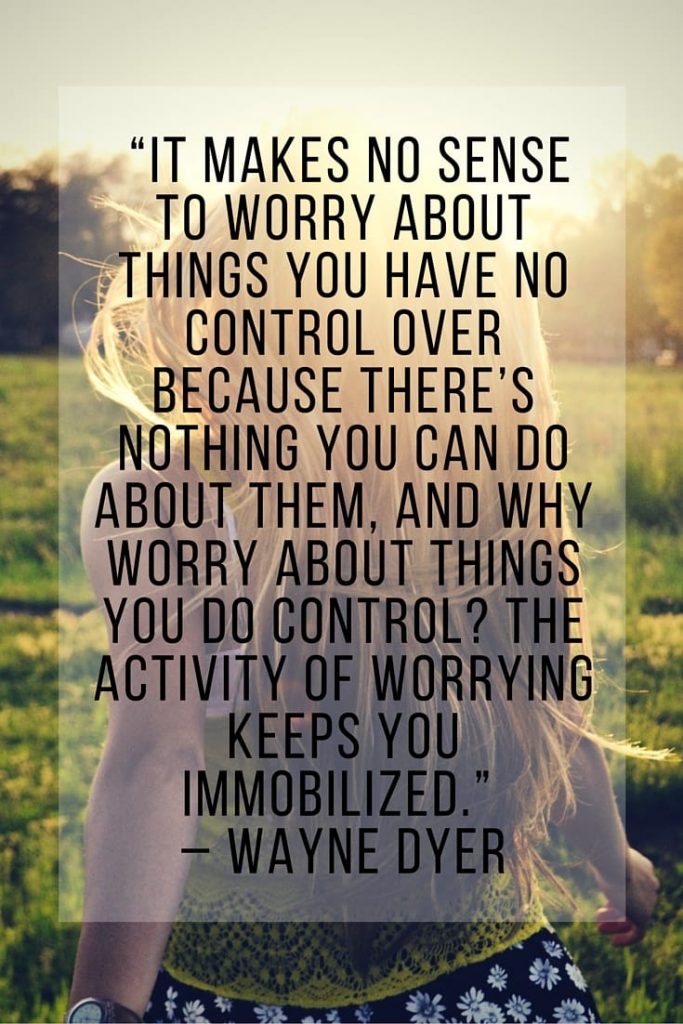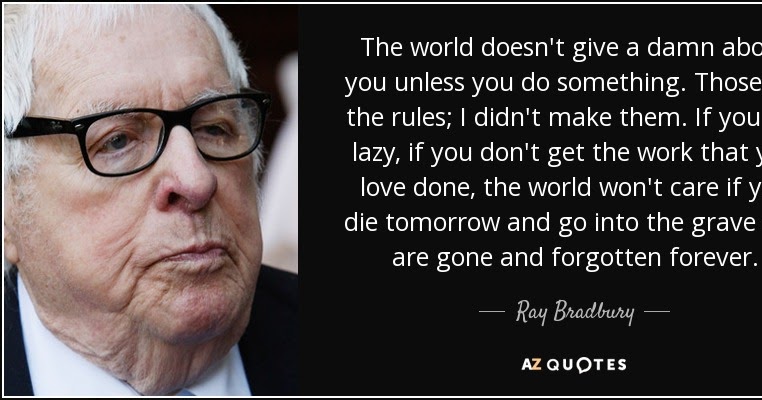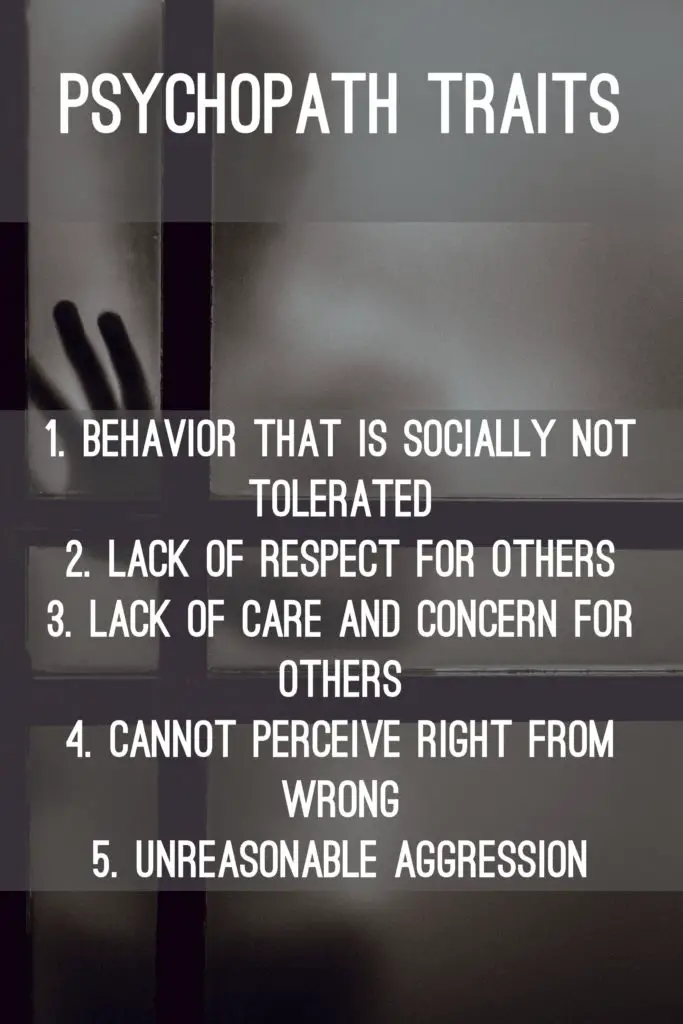Why do we worry about things
Understanding why we worry may help us stop doing it
By Bethany Pace on April 29, 2020
TU psychologist and professor addresses worrying in the era of COVID-19 and more
In addition to the fear for one’s physical health, the COVID-19 pandemic has also led to increased awareness about one’s mental health. One of the most common fear-driven behaviors people are experiencing during this unprecedented time is worry. This includes worry about loved ones, worry about how to manage homeschooling, and worry about unemployment to name just a few triggers for this behavior.
With no foreseeable end in sight for the restrictions that have been in place for several weeks, one might ask: Is worry simply an inevitable experience during this time?
The answer is that it doesn’t have to be if we let go of some of our assumptions about worry, according to Towson University psychologist Sandra Llera, an expert who studies worry and underlying factors of anxiety and mood disorders.
“While many of us are intuitively aware that worry makes us anxious and upset, research shows that we still tend to lean on worry when facing problems in our lives. One reason for this is that we may worry as a way to feel emotionally prepared for negative outcomes. However, another reason – which feels particularly relevant now – is that people often conflate worry with problem solving,” says Llera, PhD, associate professor of psychology in the College of Liberal Arts at TU.
Below, Llera shares additional insight about worry, the myths surrounding it, and alternative ways to cope with worry, whether it’s related to the uncertainty of life during the coronavirus pandemic or daily life after this period of challenge.
TU Newsroom: How can people--some of whom had pre-existing anxiety disorders--manage anxious feelings related to the new and unpredictable circumstances we are navigating during the pandemic?
Llera: Now is a good time to stay focused on your goals (i. e., keeping yourself and those around you healthy), and to try to think about the situation objectively. This doesn’t mean acting cavalier about it – you owe it to yourself and those around you to take it seriously. But if you find yourself panicking or catastrophizing, just remember – this isn’t the most effective approach to dealing with your problems, and may end up making you feel worse in the long run.
e., keeping yourself and those around you healthy), and to try to think about the situation objectively. This doesn’t mean acting cavalier about it – you owe it to yourself and those around you to take it seriously. But if you find yourself panicking or catastrophizing, just remember – this isn’t the most effective approach to dealing with your problems, and may end up making you feel worse in the long run.
If your worry is more long-standing and harder to shake off, consider trying some more active coping strategies. There are lots of self-help apps that you can try out in the safety of your own home. These include programs designed to increase mindfulness, enhance relaxation skills, or teach meditation. Even exercise is great at reducing stress.
TU Newsroom: How are anxiety and worry related?
Llera: Anxiety researchers define worry as a sequence of repetitive thoughts and mental images focused on threatening issues, that have uncertain (but possibly negative) outcomes. To put it another way, worry is like talking to yourself about something that makes you anxious, and often imagining all the ways it can go wrong. Worry is also accompanied by negative emotion and feelings of arousal, all of which can lead to an increase in anxiety. For many of us, worry is a daily experience even in the best of times, and if you tend to be an anxious person it may feel like your worries have just amplified exponentially.
To put it another way, worry is like talking to yourself about something that makes you anxious, and often imagining all the ways it can go wrong. Worry is also accompanied by negative emotion and feelings of arousal, all of which can lead to an increase in anxiety. For many of us, worry is a daily experience even in the best of times, and if you tend to be an anxious person it may feel like your worries have just amplified exponentially.
TU Newsroom: Why do some people have a hard time turning off their worries?
Llera: Despite the fact that worry makes us feel bad, many people have positive beliefs about their worries.
For one, people may believe that worry is a way to keep their (emotional) guard up. Indeed, research shows that if you worry before a negative event, you're less likely to respond to that event with a burst of negative emotion. For example, let's say you're really worried that you may have failed an exam, and when you get the results you see that you did in fact fail. In this case, you may avoid the sudden surge of disappointment you would have felt if you'd been hoping for the best. That's because all that worrying got you into a negative emotional state already - so when the bad thing happened you just kept feeling bad. And people who are naturally high worriers report they actually prefer it that way, because worrying about things helps them feel braced for the worst.
For example, let's say you're really worried that you may have failed an exam, and when you get the results you see that you did in fact fail. In this case, you may avoid the sudden surge of disappointment you would have felt if you'd been hoping for the best. That's because all that worrying got you into a negative emotional state already - so when the bad thing happened you just kept feeling bad. And people who are naturally high worriers report they actually prefer it that way, because worrying about things helps them feel braced for the worst.
Also, people may believe that worrying about a problem is similar to problem-solving. It's true that when we worry, we're focused on a distressing issue, and trying to figure out how to avoid those worst-case-scenario outcomes. But does it really help us come up with better solutions? Research shows that both of these positive beliefs about worry are myths.
But does it really help us come up with better solutions? Research shows that both of these positive beliefs about worry are myths.
TU Newsroom: What does the research say about these myths?
Llera: First, while worrying may reduce the immediate emotional impact of a negative event, research shows that unbridled worry can wreak havoc in our lives, leading to relationship problems, impaired work and school performance, and even long-term medical consequences from carrying around all that stress. Furthermore, feeling a need to keep your emotional guard up all the time can make it really hard to simply relax and enjoy a good mood, and makes it tough to stay present-moment focused.
Regarding the problem-solving myth, in a new study we tested whether people were better at solving a real-life problem if they worried about it, or thought about it in a more objective, less catastrophic manner. We found that people who had worried about their problem generated slightly less effective solutions than did those who had engaged in objective-thinking. Also, those who worried beforehand still felt worried and anxious after solving the problem. (So rather than feel a sense of relief, they were still worked up over the issue.) On top of that, the more people had worried about their problem beforehand, the less they intended to actually carry out their solution.
We found that people who had worried about their problem generated slightly less effective solutions than did those who had engaged in objective-thinking. Also, those who worried beforehand still felt worried and anxious after solving the problem. (So rather than feel a sense of relief, they were still worked up over the issue.) On top of that, the more people had worried about their problem beforehand, the less they intended to actually carry out their solution.
So overall, research shows that our positive beliefs about worry just don't hold up in the long run.
TU Newsroom: What can we do instead of worry?
Llera: For one, you can try to trust in your ability to handle negative events IF AND WHEN they happen. You'll be much better equipped to deal with it coming from a calm and objective state than if you're already all worked up. You might even be better at solving problems, and more open-minded about trying out your solutions, if you try to refrain from worrying about them. Plus, it will be easier to return to a more pleasant emotional state if you're more used to being there.
You might even be better at solving problems, and more open-minded about trying out your solutions, if you try to refrain from worrying about them. Plus, it will be easier to return to a more pleasant emotional state if you're more used to being there.
TU Newsroom: What external resources, including knowing when to seek help from a counseling or medical professional, do you recommend for managing anxiety during this time?
Llera: If worry and anxiety have been a more serious issue for you, don't be afraid to reach out for help. There are lots of mental health professionals standing by to help people dealing with COVID-related anxiety. You might try the Towson University counseling center, or look up some local therapists in your area that might be able to do online counseling.
This story is one of several related to President Kim Schatzel’s priorities for Towson University: TU Matters to Maryland.
Follow
Follow
Why Do We Worry? 3 Key Reasons and How to Cope
By understanding why we worry so much, we can find ways to cope with and minimize unhelpful thoughts.
There’s no denying that excessive worrying can take a toll on our health. Mentally, it can lead to anxiety and depression, and physically, it can elevate our stress levels and weaken our immune systems.
Above all, worrying too much can prevent us from living a happy and healthy life. When we think about everything that can go wrong in the future, we’re missing out on what’s right in front of us.
But there are ways to manage your tendencies to worry. Decreasing worrisome thoughts can help us savor the present moment.
Why do some people spend so much time and energy worrying? According to two experts in the field, there are three main reasons:
1.
 Your natural alarm system alerts you to potential danger
Your natural alarm system alerts you to potential dangerHuman bodies are designed to protect you, and when you sense a threat (real or perceived), a stress signal is sent to the brain. In everyday life, this can manifest in the form of worrying. And while it can be helpful in some cases, oftentimes, it turns into an ongoing loop that can be hard to stop.
“We worry because we’re constantly trying to figure out how to solve problems. By nature, humans are problem-solvers,” says Valentina Dragomir, a psychotherapist and founder of PsihoSensus.
“As soon as we identify a problem (even if it’s just something that’s been nagging at us), our brains start churning out possible solutions. And the more emotionally invested we are in a problem, the more worry we feel,” she says.
Worry is caused by the anticipation of a future negative event. It’s a type of anxiety that’s usually based on irrational thoughts, Dragomir adds. These include: “What if something bad happens?” or “What if I can’t handle it?”
2.
 Fear of losing control
Fear of losing controlWhile people may worry for a wide variety of reasons, it mostly comes from a place of fear — either a fear of being judged or a fear of something happening that they can’t control.
“Sometimes, people worry because they have a lot of responsibility at work or at home, and sometimes people worry because their life is just generally chaotic and uncertain,” Dragomir explains.
3.
Caring too muchAnxious people may have trouble stopping themselves from getting overly invested in a worrisome line of thought.
Alex Dimitriu, MD, double board certified in psychiatry and sleep medicine and founder of Menlo Park Psychiatry & Sleep Medicine and BrainFoodMD, sees anxiety as a problem of “caring too much” and overthinking.
From an evolutionary standpoint, having anxious people in your life may help you stay one step ahead of danger, but that instinct often fails to separate necessary worry from unnecessary worry.
“Some of us are programmed to explore and take risks, while others are programmed to be cautious, thoughtful, and conservative. Too much of any one thing is never good, and this is true with both anxiety as well as risk-taking, on the other extreme,” Dimitriu says.
Depending on which end of the spectrum you’re closer to, it’s usually beneficial to try to find a middle ground.
If you’re a risk-taker, you may enjoy a relaxing night in and slowing down every now and then. If you’re on the cautious side, on the other hand, you may surprise yourself at how fun and healthy it can be to step out of your comfort zone.
Worrying can be exhausting, but there are ways to learn to cope with and manage worrying. Here are some tips to consider.
Acknowledge your worries
The first step in dealing with worry is acknowledging its presence. Try not to see it as a disorder, but as a symptom of caring or thinking too much. “Become aware that it exists, and in most cases has been a lifelong pattern,” says Dimitriu.
Reframe your thoughts
Next, consider asking yourself, “What is the utility of this thought?” In other words, is this thought helping you in any way? By reframing your perspective and starting to think in this way, you can start to accept what you cannot change.
Determining what thoughts are necessary to focus on, and which you can safely move on from, can help give your brain the space it needs to rest. This can free up your brain to instead focus on your basic needs, such as eating nutritious foods and getting enough sleep.
It may also give you the time and energy to add stress-reducing activities into your life.
5 tips for managing worries
Here are five such activities that can help you manage your worry on a daily basis:
- Exercise regularly. Even walking for 20 minutes a few times a week can be a powerful stress management tool.
- Meditate for 10 to 15 minutes daily. There are many meditation apps that can guide you through your practice.

- Use deep breathing. Learning deep breathing techniques can help engage your body’s relaxation response so you can get some space from your worrisome thoughts.
- Start a journal. Writing down your thoughts and feelings for 20 minutes each day can help you understand and work through feelings of worry. If you don’t know what to write about, writing prompts can help you get started.
- Build a support network. Speaking about your thoughts and feelings with trusted friends and family can help you process the thoughts and feel supported along the way.
Books for learning to manage worries
For those interested in reading more about how to reduce worry, consider these book recommendations:
- “The Power of Now” by Eckhart Tolle
- “Don’t Feed the Monkey Mind: How to Stop the Cycle of Anxiety, Fear, and Worry” by Jennifer Shannon
- “The Worry Trick: How Your Brain Tricks You Into Expecting the Worst and What You Can Do About It” by David A.
 Carbonell
Carbonell
The best part about worrying less? You can start to focus on what really matters and enjoy life.
Worrying can be uncomfortable and may even deeply impact your life.
The first step is to make a list of what you worry about. Try to pay attention to your inner dialogue. Consider starting a daily journaling ritual so you can keep track of your thoughts and observe any patterns.
Along with becoming aware of your unhelpful thoughts, try practicing:
- mindfulness techniques
- meditation
- deep breathing
Creating a strong support system of friends and family can help you as you set out on your healing journey.
If the worrying persists, consider consulting with a mental health professional. If you don’t know where to find support, check out Psych Central’s guide to finding a therapist.
10 Ways to Stop Worrying About Things You Can't Control
Do you worry about what others think of you? Do you reflect on your mistakes and what you should have done differently? Do you think that something is wrong with you because the person you love does not reciprocate? Don't worry, you're perfectly fine. Stress due to things over which we have no control is a completely natural process, but with one fat minus - well, it really interferes with life! However, there are several effective ways to curb anxiety and stop wasting energy. nine0004
Stress due to things over which we have no control is a completely natural process, but with one fat minus - well, it really interferes with life! However, there are several effective ways to curb anxiety and stop wasting energy. nine0004
1. Learn to let go. One of the main sources of frustration is our inability to let go. The past, the people, the situation… There are always things in life that cannot be changed. Are you late for a very important meeting? Did something terrible that hurt your friends, family, or loved one? But it has already happened, and time cannot be turned back. What you can do now is accept the consequences and let them go. Humble yourself! Think about what to do next and move forward. nine0005
2. Focus on what you can control. If you have done wrong in the past and you realize it, try to imagine how you can make things right. If you are not satisfied with your results for the last month, work on the mistakes, think about what can be improved. Don't be late. Stay away from distractions. You may need to change some habits to do this. There are always things that you cannot control, but there are many more things that you can change. And it is wiser to choose what is worth your time and effort. nine0005
Don't be late. Stay away from distractions. You may need to change some habits to do this. There are always things that you cannot control, but there are many more things that you can change. And it is wiser to choose what is worth your time and effort. nine0005
3. Come up with a contingency plan. If things don't go your way, don't give up. Keep plans B, C, and so on in reserve. You may need to change your strategy, your way of thinking, or the way you react to a given situation. Use all available resources. Focus on finding solutions instead of imaginary things to worry about.
4. Get out of your comfort zone. Another way to stop worrying is to have the courage to do something else. Do not be afraid of change, strangers, try new things, do not lose heart. You will be surprised at what you are capable of. Stepping out of our comfort zone certainly affects the way we look at things.
5. Strive to be better. Instead of pleasing everyone, try to be better for yourself. Learn from your mistakes. You may not have control over past decisions or who stays or leaves your life, but you always have the chance to do better and be better. nine0005
6. Surround yourself with positive people. Too many experiences alone can drive one crazy. Try to talk to those who listen to you and really understand. Tell your friends about what's bothering you. Heed their advice. Let them share with you a fresh perspective on how to deal with things that are out of your control.
7. Be open to change. Everything in life is uncertain, but that is what makes it beautiful. Learn to accept uncertainty. Yes, change is inevitable, and without it, you will never know what opportunities await you. Embrace change and learn to adapt to it when it happens. nine0005
nine0005
8. Avoid self-blame. It is wrong to place all the blame on yourself. You may have done something stupid in the past, but you still have a chance to apply the lessons learned. Reproaching yourself won't do you any good. Don't be too hard on yourself. Take inspiration from the stories of people who have been through a lot. And trust that you can do it too.
9. Try to lead a healthy lifestyle. nine0004 The wrong way of life can become the source of many problems. For example, you worry about gaining extra weight, but do nothing about it. How about taking the small step of foregoing cake for tea? Try to exercise every day. Don't eat too much fast food. Drink more water. Get enough sleep.
It may seem to you that all this is too difficult and even impossible, so remember that your real enemy is your disbelief in yourself. So, before you storm the peaks, start conquering yourself. nine0005
nine0005
10. Set a strict time for social media. If you spend too much time browsing social media content, it can become a source of hidden anxiety. You worry about not having a partner when everyone is dating, getting married and starting families. You get frustrated because you have not achieved anything, and your friends are enjoying the success with might and main. You are plagued by envy and feelings of inferiority. Stop following someone else's life (besides, it is turned only to you with a glossy side), take a break from social networks and focus on achieving your own goals. In addition, you can always return to virtual life, if, of course, you want ...
8 things not to worry about
If there is no solution to a problem, don't waste time worrying about it. If there is a solution to this problem, then do not waste time worrying ...
Dalai Lama
We live in a world woven from worries and anxieties. We are afraid of getting sick and being fired from work, we get upset when extra pounds and wrinkles appear under our eyes, we worry about loved ones and children, we puzzle over the reasons for the bad mood of the boss and loved one. We worry too much. nine0005
We are afraid of getting sick and being fired from work, we get upset when extra pounds and wrinkles appear under our eyes, we worry about loved ones and children, we puzzle over the reasons for the bad mood of the boss and loved one. We worry too much. nine0005
The younger the age and the more vulnerable the soul, the more reasons for our anxiety. Gradually, experience comes, character is tempered, and it turns out that there are actually not so many worthwhile reasons for concern. Some call it wisdom. We want to make this process a little easier and have compiled a list of things for you to definitely not worry about.
What others will think
Oooh, this is the most popular type of anxiety that lies in wait for us at every turn. Before each unusual or important act, we are wary of condemning loved ones or even complete strangers. For some, especially impressionable persons, this fear leads to the fact that, putting on a new bright scarf, they become covered with cold perspiration, imagining how all metro passengers do nothing but look at them, think about them and wink gloatingly behind their backs. nine0005
nine0005
Leave it! No one cares about you, and if they do, it's their problem. You are an adult, you make your own decisions and are responsible for their consequences. Don't let other people's opinions shape your life, because by trying to conform to someone else's opinions, you will lose yourself.
How much do you weigh
Yes, the cult of health and beauty, imprinted in our minds, has led to the fact that the wrong number on the scale can ruin your mood for a long time. I do not call for abandoning a healthy lifestyle and nutrition, but in everything you need to know the measure and not get hung up. Sometimes, especially if your weight is not too over the top, worrying about extra pounds can be more harmful to health than the pounds themselves. nine0005
How other people live
Don't worry about other people's lives, especially if it doesn't directly affect you. Let other people live their own lives, just like you do. Don't worry about a colleague's number of mistresses, a neighbor's parenting, or a stranger's clothes. This is their business.
This is their business.
And most importantly, stop comparing yourself, your house, your income with others. This is a path that leads nowhere and gives only irritation. If you do this, then there will always be a more beautiful, or richer, or more fortunate person who will poison your existence. Just remember that there are millions of people who are willing to donate a kidney to switch places with you. And calm down. nine0005
Social networks
Don't worry about having many or no Facebook friends*. Do not be sad about likes or stupid comments. Yes, social networks have become an important part of our lives, but still it is not our whole life. It's just a good tool for social interaction, but no more. Do not attach too much importance to virtual friends and enemies, better get real ones.
Perfection
Perfection is unattainable. Dot. nine0005
Just accept and accept. Try to do your job well, but do not worry about the impossible. The desire to get the perfect result in one case will close hundreds of other cases from you.
Age
You can't stop the clock. This is a fact, no matter how much you worry about it or how much money you throw away trying to hide the consequences. Stop worrying about it. Twenty-year-olds think that life ends at thirty, thirty-year-olds push back this period by another ten years. In fact, both of them are wrong - I know that for sure :). nine0005
Happiness does not really depend on age, and even a gray-haired pensioner can live a more eventful life than a beardless student. So stop worrying about age and wrinkles, think about filling each day.
They are wrong!
Every person has a craving for justice and truth. It is important that the desire to prove your case and restore justice does not interfere with your life. You respond to every attack in your direction, carefully collect evidence and show miracles of eloquence. Unfortunately, this usually leads to absolutely nothing. Your opponent sticks to his opinion or even laughs at your vehemence.













